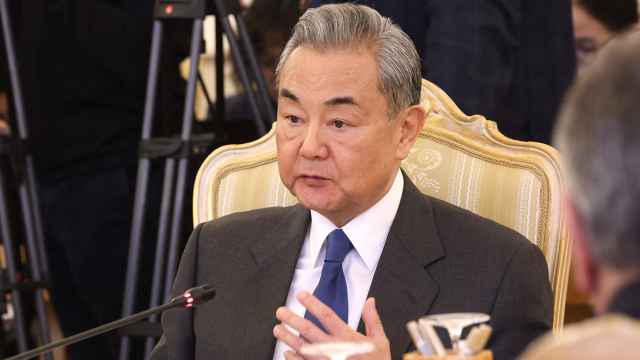Investment in Russian venture capital fell last year for the first time since the market's inception — but for once, this may actually be a good thing.
Russia's dynamic, technology-focused venture capital market is seen by many as a place to make a fortune and a breeding ground for the future drivers of the country's economy. Last year was a "turning point" for the maturing market, said Anton Abashkin, director at PwC's Center for Technology and Innovation in Russia.
With five years of experience under their belts — the typical length of an investment cycle for a venture capital fund — investors have become more prudent in their decisions and are monetizing their investments, according to market players and a survey by PwC. Their tastes have also shifted: financial technologies, or fintech, is edging out e-commerce to become the market's new rising star.
Foreign investors maintained a meager presence in Russia's venture capital market, while their investments in the Russian Internet as a whole fell last year. Meanwhile, the controversial ramping up of government regulation of the Internet is not only whipping up anxiety, but offering new opportunities for nimble investors.
New Approaches
Even as investment volumes fell by 30 percent last year, the total number of investments continued to climb, increasing by nearly 20 percent, according to PwC's MoneyTree report.
In other words: "There are a lot more investors and a lot more entrepreneurial companies, and expectations are not as high as before," Abashkin said. As investors became more discerning in their evaluations, the average deal amount shrank by nearly 50 percent from previous years.
Rather than funding new startups, investors focused on managing existing portfolios and exiting from current investments — with notable success. Venture capitalists brought in over $2 billion in returns from their 22 exits in 2013, compared to $370 million from 12 exits in 2012, according to PwC.
The market has also shifted away from seed-stage startups towards existing companies with a two- to three-year track record and proven business models, said Marina Treshchova, chief executive of Fastlane Ventures, a venture capital fund with about $100 million invested in online businesses in Russia. Investment in later rounds of funding — rounds C, D and E, in venture capital jargon — leapt from 13 percent in 2011 to 45 percent last year.
This year may be slow for investment, as venture capitalists continue to focus on exiting their first cycle, but a new wave of investment is on the horizon. Funds have begun raising capital for the second or even third cycle of investments. "If the overall economic environment recovers, we will continue to see growth," Abashkin said.
Rising Stars
The undisputed star of 2013 was financial technologies, or fintech, which encompasses payment systems, mobile banking applications, virtual currencies and other digital means by which banks, businesses and individuals conduct their finances.
"It is the next big thing," said Alexander Ivanov, partner and chief financial officer of Life.Sreda, a venture capital fund that invests in fintech startups in Russia and abroad. "The previous major trend was social media, Facebook, LinkedIn. But not everybody uses social networks, and everybody uses money."
From essentially no standing among Russian investors previously, the sector pulled in $27 million in Russia and $2.2 billion globally in 2013, according to Life.Sreda's estimates.
Fintech still faces certain obstacles in Russia, first and foremost the fact that Russians still conduct about 80 percent of their transactions in cash, Ivanov said. But as the Internet spreads and e-commerce grows, bringing with it a demand for digital payment systems, Life.Sreda expects Russia to be third-largest in Europe within two years for quantity of electronic payments.
E-commerce is still the leading destination for investment, but as the market matures its appeal is beginning to fade. E-commerce went from 68 percent of all investment in the Russian Internet industry in 2012 to 58 percent in 2013, and in the long run will likely continue to decline. "In developed countries, the share of e-commerce in investment projects is much lower," Treshchova said.
Nonetheless, the sector will continue to attract about half of all investment in the Internet industry over the next few years, Treshchova added.
Foreign Capital
Growing numbers of foreign investors have appeared on the venture capital market over the last two years, but their presence is still small. Foreign capital participated in less than 10 percent of all investments on the Russian market in 2013 and less than 20 percent in dollar terms, according to PwC.
Few foreign funds have special allocations for Russia or on-the-ground knowledge of the market, making it difficult for them to assess the risk of a given investment. As a result, they usually restrict themselves to investing in consortiums with reputable Russian investors. "This is usually the critical point for them, foreign investors are only ready to risk alongside local investors," Abashkin said.
Looking at the entire Russian Internet market, foreign investment is actually losing ground: purely Russian capital accounted for 53 percent of reported investment in 2013 ($358 million), up from 42 percent in 2012 ($270 million), according to Fastlane Ventures.
"Until political certainty appears, foreign investors are putting their decisions on hold … There is more and more Russian capital, and this tendency will continue in 2014," Treshchova said.
Threats of Regulation
The beginning of 2014 was marked by a wave of initiatives to increase state regulation of the Internet. For example, a bill that passed its third reading in the State Duma in late April would require social networks, blog hosting websites and other online resources to save users' information and all their electronic communications for half a year, to be provided at the request of law enforcement.
"There are some harsh measures that could negatively effect the sector," Fastlane Ventures' Treshchova said. But for the most part, venture capital firms do not expect legal changes to significantly undermine the market's future. And while changing the rules could hurt existing companies, it will also create opportunities for flexible startups that can adapt their business strategies to the new reality.
Another piece of legislation signed into law last week bans anonymous payments between individuals of over 15,000 rubles ($435) per day and sets a limit of 40,000 rubles per month. Ostensibly targeted against terrorism, the law could complicate online payments and "will be a big pain for companies like Qiwi and Yandex.Money," Life.Sreda's Ivanov said.
"But it also gives a lot of opportunities to newcomers," he added.
Contact the author at d.damora@imedia.ru
A Message from The Moscow Times:
Dear readers,
We are facing unprecedented challenges. Russia's Prosecutor General's Office has designated The Moscow Times as an "undesirable" organization, criminalizing our work and putting our staff at risk of prosecution. This follows our earlier unjust labeling as a "foreign agent."
These actions are direct attempts to silence independent journalism in Russia. The authorities claim our work "discredits the decisions of the Russian leadership." We see things differently: we strive to provide accurate, unbiased reporting on Russia.
We, the journalists of The Moscow Times, refuse to be silenced. But to continue our work, we need your help.
Your support, no matter how small, makes a world of difference. If you can, please support us monthly starting from just $2. It's quick to set up, and every contribution makes a significant impact.
By supporting The Moscow Times, you're defending open, independent journalism in the face of repression. Thank you for standing with us.
Remind me later.






